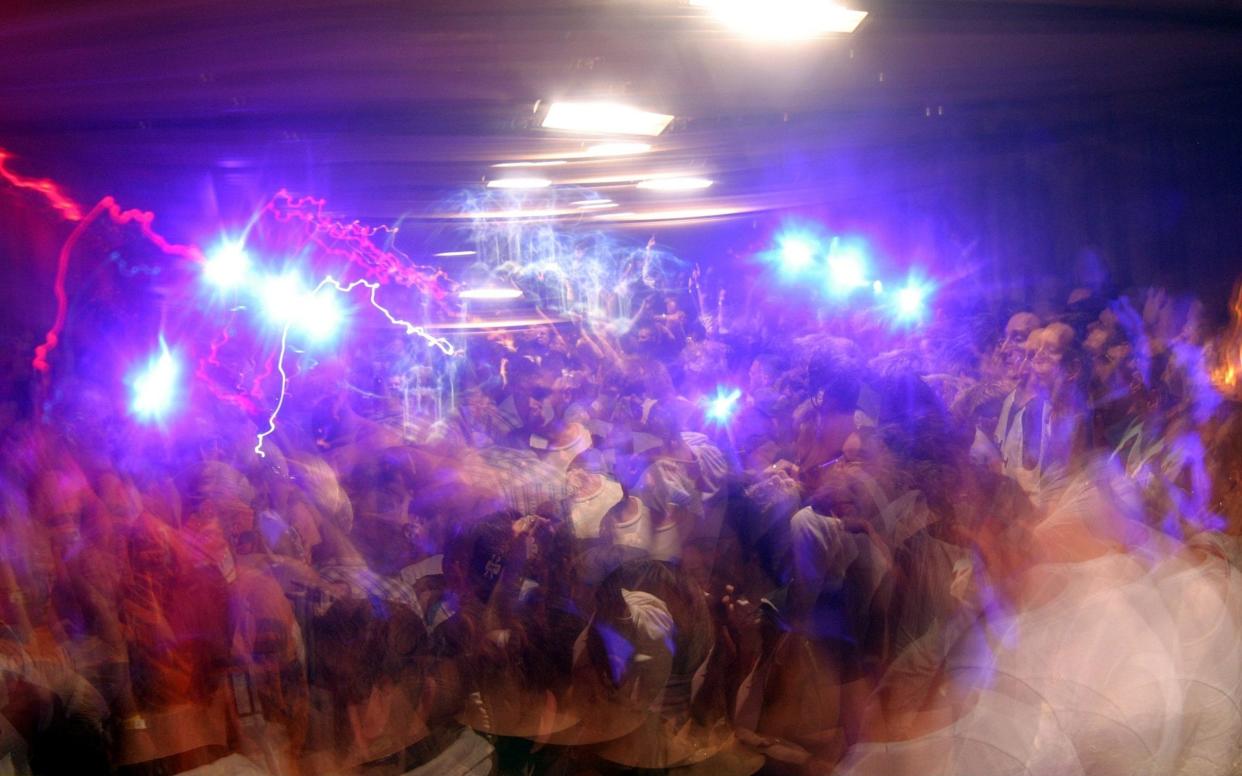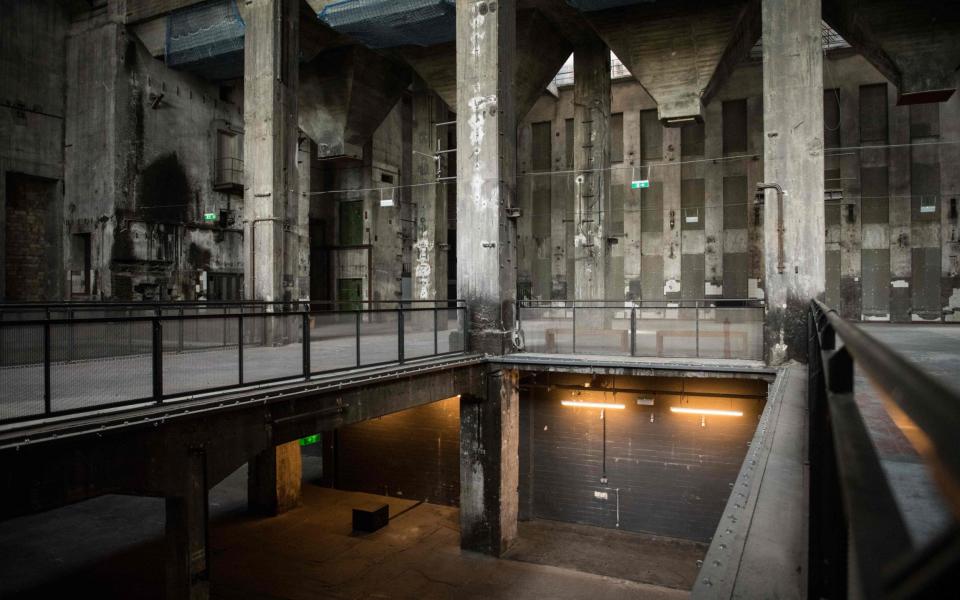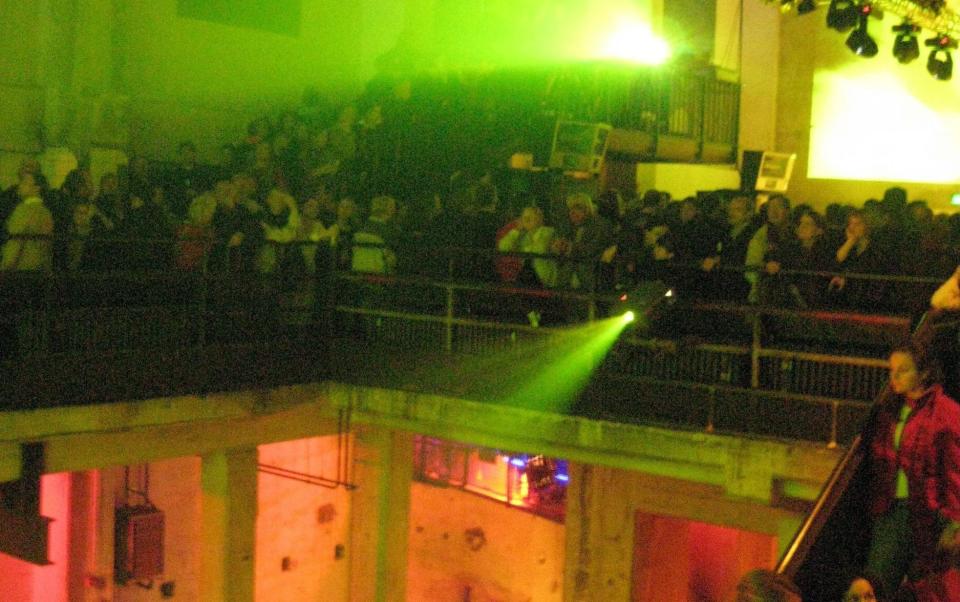Can Unesco save Berlin’s seedy techno dens?

Thousands of years ago, druids would gather at Stonehenge for wild all-night celebrations. Today similar rituals unfold at nightclubs across the world, with pagan rites replaced by the euphoric throb of trance and techno. And now the night-time industry in global clubbing hotspot Berlin is seeking a Unesco World Heritage status similar to that bestowed on Stonehenge. Can Berlin – famed for such temples to hedonism as Tresor and Berghain – rave its way into Unesco’s power rankings?
The prospect of clubbing receiving a stamp of official respectability is, on the face of it, absurd. The techno scene originally represented an act of cultural rebellion against the status quo – as demonstrated by the early Nineties moral panic in Britain over illegal raves (culminating in the quasi-outlawing of “repetitive beats” under the 1994 Criminal Justice Act).
Given that relatively recent infamy it seems bonkers that techno should wish to join polite society. Where will it end? Firestarter by Prodigy playing at Last Night at the Proms? Paul Oakenfold on a five pound note? Altern-8 invited to play for the Queen? Stranger things have happened – for instance, Brian May rocking out on the roof of Buckingham Palace in 2002. If the guy who helped co-write Fat Bottomed Girls can noodle for royalty surrounded by drain-pipes and scaffolding, anything is possible.
Behind the Berlin campaign for Unesco “Intangible Cultural Heritage” status is a concern that gentrification may sound a death-knell for a clubbing tradition that has become the city’s calling card. With some 100 clubs and venues estimated to have shuttered in the German capital amid spiralling property prices in the past 10 years these fears are undoubtedly valid. “If we don’t do something now and let the whole scene be recognised just on commercial and entertainment aspects, it will be taken over by whoever has more money,” Tomasz Guiddo of pressure group Rave the Planet told DJ Mag.
Berlin is certainly a special case. Since the fall of the Wall, Germany has reinvented itself as an artisanal motherlode – the home of Kraftwerk becoming the home of craft beards and a place of cheap rents and a destination for artists priced out of London and New York. It has also given the world its most famous and notorious club in Berghain – a 1,500 capacity venue located on an industrial estate in East Berlin and with an infamously selective (some would say capricious) door policy.

Having been temporarily transformed into a gallery during the pandemic, Berghain re-opened in October. More than a club, this former power plant is also a tourist destination and a subject of prurient fascination because of its “anything goes” reputation.
“In addition to the music, sex and drugs were always a key part of the club’s appeal,” went an incredulous 2014 Rolling Stone profile of Berghain. “It’s no accident that Berghain offers countless areas for people to sneak away to — there are two darkrooms, small closable cubbies upstairs, and large unisex bathroom stalls”.
Even more celebrated than the sex cubbies and the state-of-the-art soundsystem is Berghain’s highly-selective doorman Sven. A part-time street photographer and full-time arbiter of cool, Sven and his fellow bouncers have achieved mythological status because of the completely arbitrary manner by which they grant or deny entry. The art of getting into Berghain has spawned dozens of newspaper articles and even a video game that simulates the challenge of impressing Sven with your swagger.
The secret is to apparently make an effort without trying too hard – to dress up without looking as if you’re dressing up. It’s essentially a 21st century Riddle of the Sphinx with bonus glo-sticks and a soundtrack by BPitch Control.
But though it’s of course amusing to picture flop-sweating hipsters falling foul of Sven’s withering gaze, is this truly the stuff of which Unesco World Heritage status is made? Advocates say yes – official recognition would help clubbing become more sustainable rather than be left subject to the whims of property developers and music promoters (both well known for their stringent moral compasses).

“If techno is recognised as a cultural asset rather than just hedonistic party or drug music, it would help the artists, labels, producers and promoters greatly,” producer and DJ Ian Oldham told DJ Mag. He added that such protections would not just benefit Berlin but could also help secure the future of iconic venues across the world.
“It would maybe also have the same effect as historical landmarks do, protecting some important venues, like Tresor, from encroaching gentrification. It would be very helpful globally. I am always reading about how venues like Fabric in London are under attack from real estate developers. If these venues were somehow culturally protected, it would be great.”
And yet the danger is surely that by giving an official seal of approval to nightclubs, then something intangible and precious might be lost. The excitement around the clubbing comes from the fact that it is on the margins. And while a multi-million pound industry, it is also an insurgent art-form that bubbled up from the streets and set itself against the mores of polite society.
Bestowing World Heritage status on venues such as Berghain or Fabric might guarantee medium-term survival. But doing so would bring with it an inevitable aura of fuddiness. The entire point of Berghain is that it is transgressive and carries a whiff of the forbidden. Chucking up a blue plaque outside would risk turning it into a techno Disneyland. At which point true ravers will have long since departed for the hills anyway.